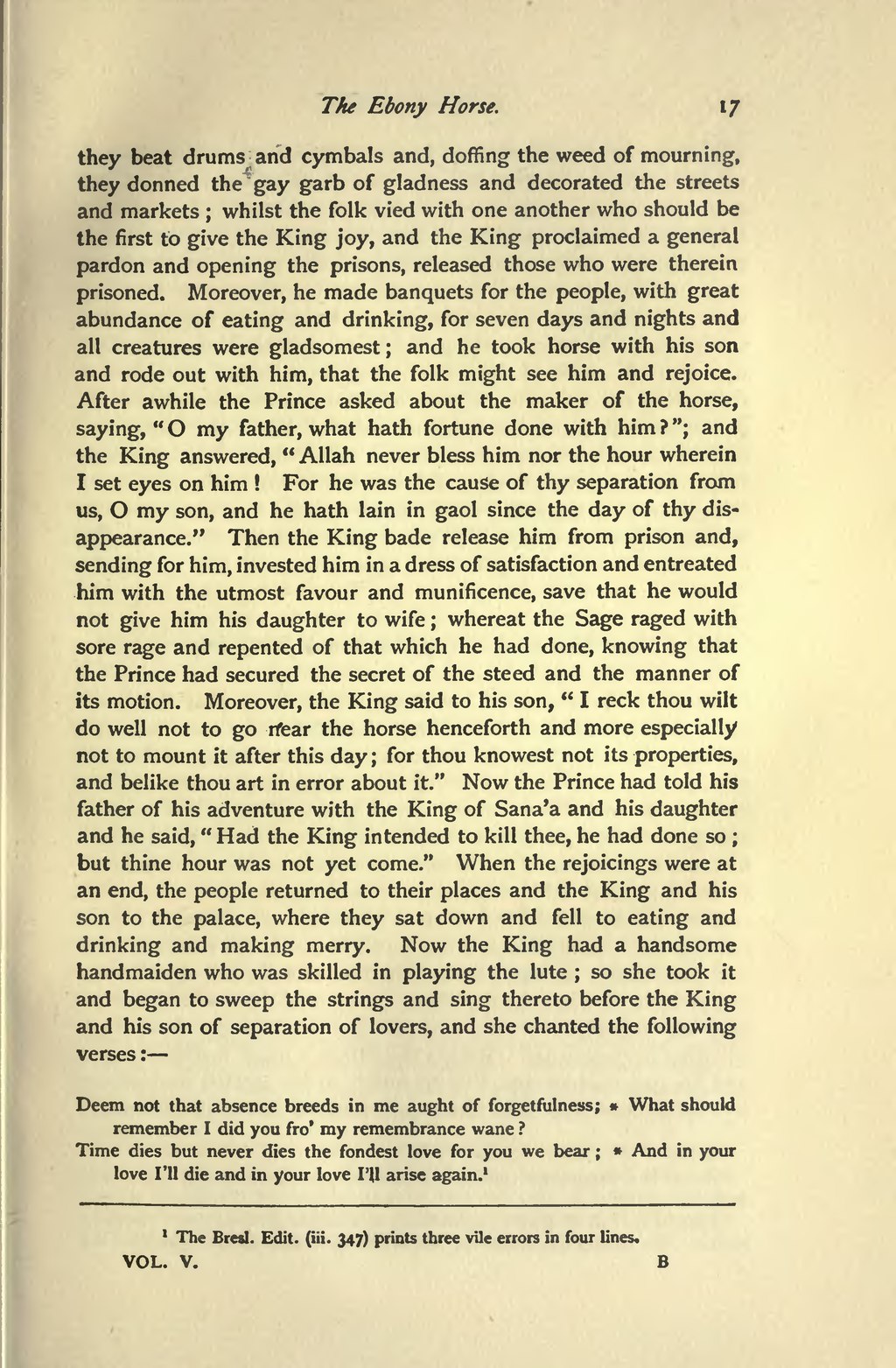they beat drums and cymbals and, doffing the weed of mourning, they donned the gay garb of gladness and decorated the streets and markets; whilst the folk vied with one another who should be the first to give the King joy, and the King proclaimed a general pardon and opening the prisons, released those who were therein prisoned. Moreover, he made banquets for the people, with great abundance of eating and drinking, for seven days and nights and all creatures were gladsomest; and he took horse with his son and rode out with him, that the folk might see him and rejoice. After awhile the Prince asked about the maker of the horse, saying, "O my father, what hath fortune done with him?"; and the King answered, "Allah never bless him nor the hour wherein I set eyes on him! For he was the cause of thy separation from us, O my son, and he hath lain in gaol since the day of thy disappearance." Then the King bade release him from prison and, sending for him, invested him in a dress of satisfaction and entreated him with the utmost favour and munificence, save that he would not give him his daughter to wife; whereat the Sage raged with sore rage and repented of that which he had done, knowing that the Prince had secured the secret of the steed and the manner of its motion. Moreover, the King said to his son, "I reck thou wilt do will not to go near the horse henceforth and more especially not to mount it after this day; for thou knowest not its properties, and belike thou art in error about it." Not the Prince had told his father of his adventure with the King of Sana'a and his daughter and he said, "Had the King intended to kill thee, he had done so; but thine hour was not yet come." When the rejoicings were at an end, the people returned to their places and the King and his son to the palace, where they sat down and fell to eating and drinking and making merry. Now the King had a handsome handmaiden who was skilled in playing the lute; so she took it and began to sweep the strings and sing thereto before the King and his son of separation of lovers, and she chanted the following verses:--
"Deem not that absence breeds in me aught of forgetfulness; * What should remember I did you fro' my remembrance wane? Time dies but never dies the fondest love for you we bear; * And in your love I'll die and in your love I'll arise again." [FN#20]
